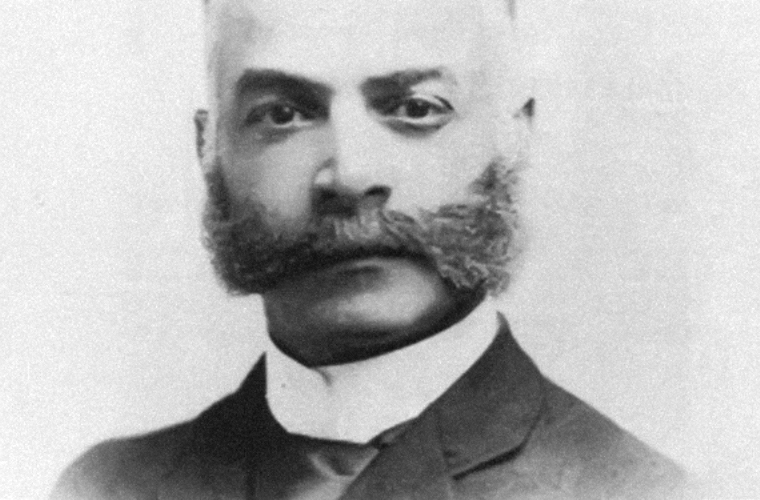Archibald Grimke was a leading intellectual, activist, and author on racial equality in early 20th Century America. Grimke was born into slavery, the son of Nancy Weston, a slave, and Henry Grimke, her owner. After his father’s death, he and his brother Francis spent eight years living as freemen before his half-brother, Montague, took them as servants into his home in 1860. After suffering beatings at Montague’s hand, Archibald fled and hid with relatives until Charleston fell to Union forces in 1865.
Archibald Grimke attended Lincoln College in Pennsylvania, and in 1872 became one of the first African American students at Harvard Law School in Massachusetts. Upon graduation, he established a law practice in Boston, where he became an ardent supporter of suffrage for women and African Americans. From 1894 to 1898 he was counsel to Santo Domingo (The Dominican Republic). In 1903 Grimke became president of the American Negro Academy, the nation’s preeminent black intellectual society, a role he held until 1919.
Grimke was a brilliant writer and a persuasive orator with an independent streak that placed him in conflict with more established African American leaders such as Booker T. Washington and W.E.B. DuBois. He disagreed with Washington’s accommodationist approach to the race problem, but sought change from within, frequently writing anti-Washington columns in the New York Age, the leading pro-Washington newspaper. When W.E.B. DuBois started the Niagara Movement, to argue for direct action rather than conciliation, Archibald eventually joined, but his relationship with DuBois was strained because he didn’t feel the organization fought hard enough for blacks’ rights.
In 1909 Archibald Grimke became a founding member of the National Association for the Advancement of Colored People (NAACP). Four years later he was elected president of the Washington, D.C. chapter and a member of the organization’s national board of directors. Grimke also won the Spingarn Medal, the highest honor given by the NAACP, in 1919. Archibald Grimke died in Washington, D.C. in 1930.

